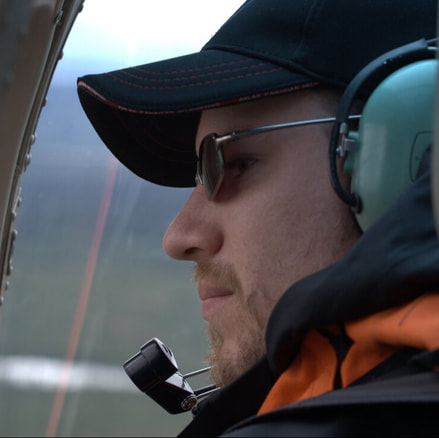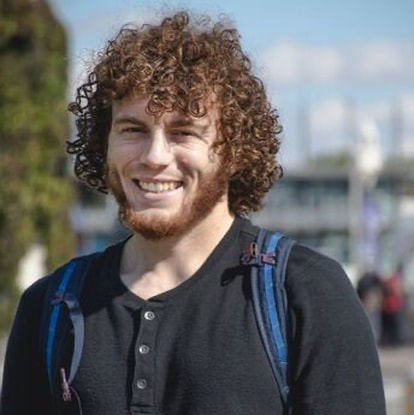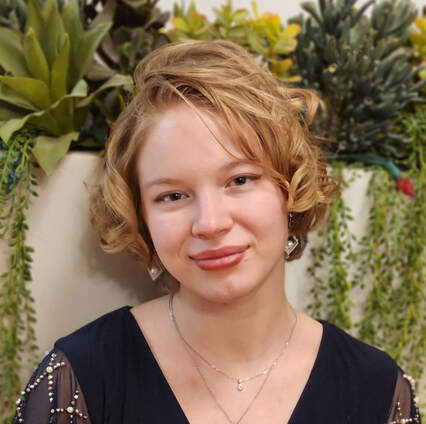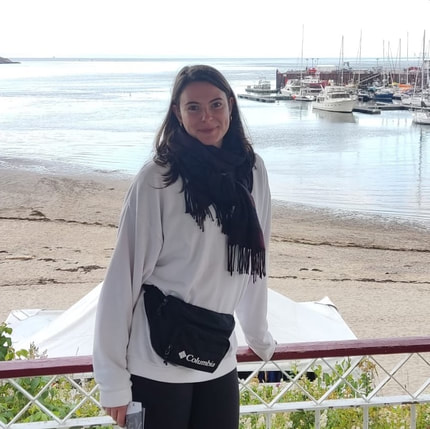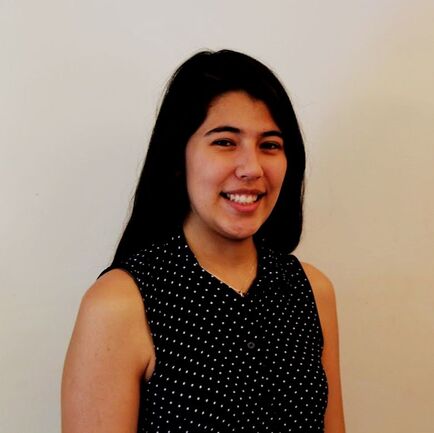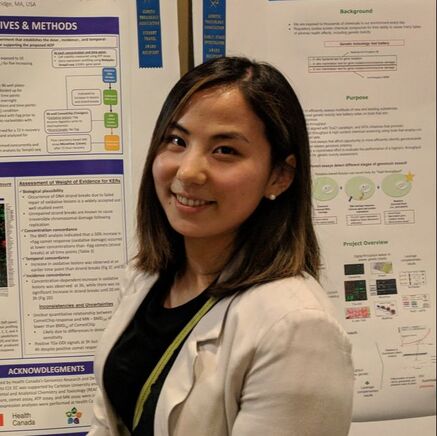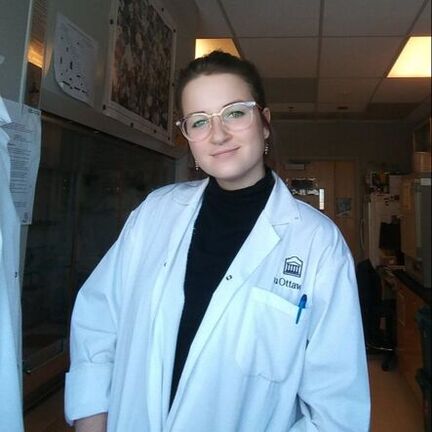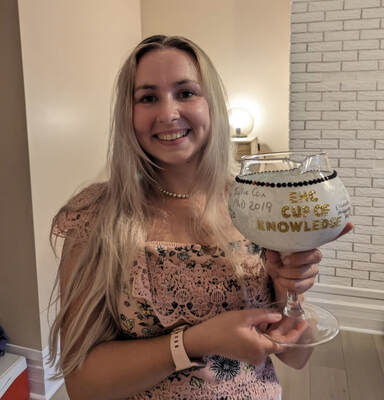|
|
David Eickmeyer, MSc
GReAT lab senior technician Dave's background is in paleolimnology and organic environmental contaminant isolation and quantification, having focused mainly on PAHs, PCBs, and OC pesticides. He is looking forward to helping get the GReAT lab up and running and doing what he can to bring some order to chaos. |
David Schuster
Ph.D. Student David’s project works towards validation of a novel error-corrected sequencing method called Duplex Sequencing (DS). He is comparing mutation frequencies and spectra measured by DS to conventional mutagenicity endpoints. His project involves many international collaborators to potentially establish DS as the new gold standard for in vivo mutagenicity testing. Co-supervisor: Francesco Marchetti, Health Canada, and adjunct at Carleton |
|
Geronimo Parodi-Matteo
Ph.D. Student Geronimo is conducting research to determine the toxicity of plasticizers that are used to replace Bisphenol A (BPA), a widely studied endocrine disrupting chemical. Canada was the first country to take regulatory action on BPA. Many new chemicals have since emerged as replacements to BPA and Geronimo is using high-throughput transcriptomics to study the estrogenic activity and potency of these replacements. He's also exploring how these chemicals interact in mixtures to cause toxicity and inform regulatory decision-making. His work is helping to catalyze the modernization of human health risk assessment. Co-supervisor: Ella Atlas, Health Canada and adjunct at uOttawa |
Madison Steward
M.Sc. Candidate Madison’s project uses Duplex Sequencing, an error-corrected sequencing technology, to analyze the germ cell mutagenicity of benzo(b)fluoranthene (BbF), a widespread polycyclic aromatic hydrocarbon. This analysis will reveal whether exposure to BbF may cause heritable mutations and will advance the use of Duplex Sequencing as a new methodology for in vivo mutagenicity testing. Supervisors: Madison is co-supervised by Dr. Francesco Marchetti, Health Canada and adjunct at Carleton University |
|
Hyojin Lee
Post-doctoral fellow Hyojin's research in the GReAT lab explores the underlying molecular mechanisms of toxicity and potency of per- and poly-fluorinated substances (PFAS) both individually and when present in mixtures. She will be determining benchmark dose (BMD) /point-of-departure (POD) of PFASs using the zebrafish model and transcriptomics and performing class-based hazard assessments of PFAS mixture. Supervisors: Hyojin has three supervisors for this complex multi-disciplinary project. Carole Yauk and Jan Mennigen (uOttawa), and Jason O’Brien from Environment and Climate Change Canada |
Mikko Herrala
Post-doctoral fellow Mikko is a visiting postdoc from Finland. His research focuses on environmental health and toxicity testing of various environmental agents. Mikko’s current research project, funded by the Research Council of Finland, aims to assess the genotoxicity and toxicity mechanisms associated with natural anthraquinone dyes. During his visit in the GReAT lab, he uses HepaRG cells for micronucleus and TempO-seq assays to study these biocolourants. |
|
James Alper Alcarez
Post-doctoral fellow James utilizes error-corrected next-generation sequencing (ecNGS) methods to investigate toxicant-induced mutagenesis when organisms are exposed during fetal developmental and adult stages. His project aims to advance the use of highly accurate ecNGS, particularly Duplex Sequencing, in mutagenicity studies, including the characterization of mutational signatures, identification of hotspot cancer gene loci, and quantification of mutational burden, as well as estimating the benchmark dose for which toxicants induce significant mutations. James has a background in the use of omics technologies (transcriptomics, proteomics, genomics) in human and environmental health risk assessment |
Elena Esina
M.Sc. Student Elena’s project focuses on applying error-corrected next-generation sequencing technologies to provide an in-depth analysis of the mutagenic effects of aging in mouse liver and bone marrow. This project will deepen our understanding of the changes brought about by the aging process in different cell types, forming a foundation for developing strategies that protect genome stability and prevent age-related disease. |
|
Emmanuelle Monniez
Ph.D. Student Emmanuelle is co-supervised by Drs. Vance Trudeau and Carole Yauk. Her research aims to determine the effects of developmental exposure to selective serotonin reuptake inhibitors (SSRI) on the regulation of the stress axis in zebrafish. She is investigating the lasting effects of these early life exposures on effects later in life and explores transcriptomic, physiological, and behavioural endpoints. |
Gone on to other GReAT things
|
Elizabeth Huliganga
M.Sc. Elizabeth’s thesis defence in March 2023 was exceptional, leading to an award nomination. Her MSc focussed on predictive toxicology and developing approaches that we hope someday will reduce or eliminate the need for conventional toxicology tests like those done in animals. She conducted numerous experiments to collect empirical evidence to build Adverse Outcome Pathways (AOPs: https://aopwiki.org/). Her work involved determining the quantitative relationships between increases in oxidative stress, DNA damage, mutations and chromosomal aberrations. She was co-supervised by Dr. Francesco Marchetti, Health Canada and adjunct at Carleton University. Liz is now working as a Biologist at Health Canada. Anne-Marie Fortin
M.Sc. Anne-Marie knocked her defence out of the park in November 2022, to receiver her MSc. Her research focused on the TGx-DDI biomarker, a transcriptomic multigene biomarker that identifies DNA-damaging chemical agents in human cells. The project aimed to determine genetic toxicity point‐of‐departure (PoD) metrics for TGx-DDI, and to investigate the incorporation of the TGx-DDI biomarker into Health Canada's GeneTox21 testing program with Dr. Paul White (Co-supervisor). She is currently a Risk Management Advisor at Health Canada. |
Eunnara Cho
Ph.D. Eunnara defended her PhD in January 2023, receiving an award nomination for her outstanding dissertation. Her thesis involved collaborating with researchers across industry, government and academia to investigate how the application of newer in vitro assays in genetic toxicology can be guided by Adverse Outcome Pathways (https://aopwiki.org/). The work integrated high-throughput DNA damage assays with genomic technologies, such as TempO-seq for gene expression analysis and duplex sequencing for mutation detection. Eunnara is now a Biologist at Health Canada, pursuing her passion for developing and applying new approach methodologies to reduce reliance on animal testing and to increase understanding of human toxicology. Tatiana Kozbenko
M.Sc. Tatiana is our rocket scientist! She defended her MSc in November 2023. Her research involved building space-flight relevant AOPs (adverse outcome pathways). Specifically, she worked in teams with Health Canada (Health Canada supervisor: Vinita Chauhan) to collect and analyze data to support the link between ionizing radiation in space and resulting cardiovascular disease, ocular disorders, bone loss and cognitive effects. Tatiana is also passionate about science communication and completed the illustrations for our GReAT website! Tatiana is currently a Project Coordinator at Risk Sciences International |
|
Jonatan Axelsson
Visiting scientist Jonatan is a physician who visited the GReAT lab from Sweden. His research focuses on the role of environmental and life-style related factors that may mediate germ cell mutation frequencies and spectra in males as possible explanations behind diseases in offspring. He continues to collaborate with the GReAT lab in studying mutation using DS in both mice and humans to explore this possibility. Anthony Reardon
Post-doctoral fellow Anthony was doing research to understand the toxicological effects of per- and poly-fluoroalkyl substances (PFAS), often referred to as 'forever chemicals'. With over 4,000 in the environment, he used transcriptomic profiling technologies to understand the dose-response behaviours of untested PFAS on their own and in mixtures. Co-supervisor: Ella Atlas, Health Canada and adjunct uOttawa Anthony is now a regulatory scientist in the Existing Substances and Risk Assessment Bureau at Health Canada. He's putting the newest approaches in genomics and in vitro tests into action in regulatory decision making to protect human health. |
Kundai Mufara
Volunteer Kundai was a volunteer helping us to build Adverse Outcome Pathways linking chemically induced DNA damage to downstream effects like chromosome breaks and mutations. She's now a science content writer for an environmental software company, combining her love of science, writing and communication. http://kuecreates.com/professional-portfolio/ Annette Dodge
M.Sc. Annette's research focused on the application of new in vivo assays in genetic toxicology. Specifically, she was working on applying Duplex Sequencing™ as a novel method for the analysis of mutation induction and spectra in tissues exposed to toxic substances. This work aimed to investigate if Duplex Sequencing could serve as a new standard for in vivo mutagenicity testing that obviates the need for transgenic organisms. Co-supervisor: Francesco Marchetti, Health Canada and adjunct at Carleton Annette Dodge defended her MSc thesis and received an award nomination! She has gone on to a job as a Biologist at Health Canada!!! |

